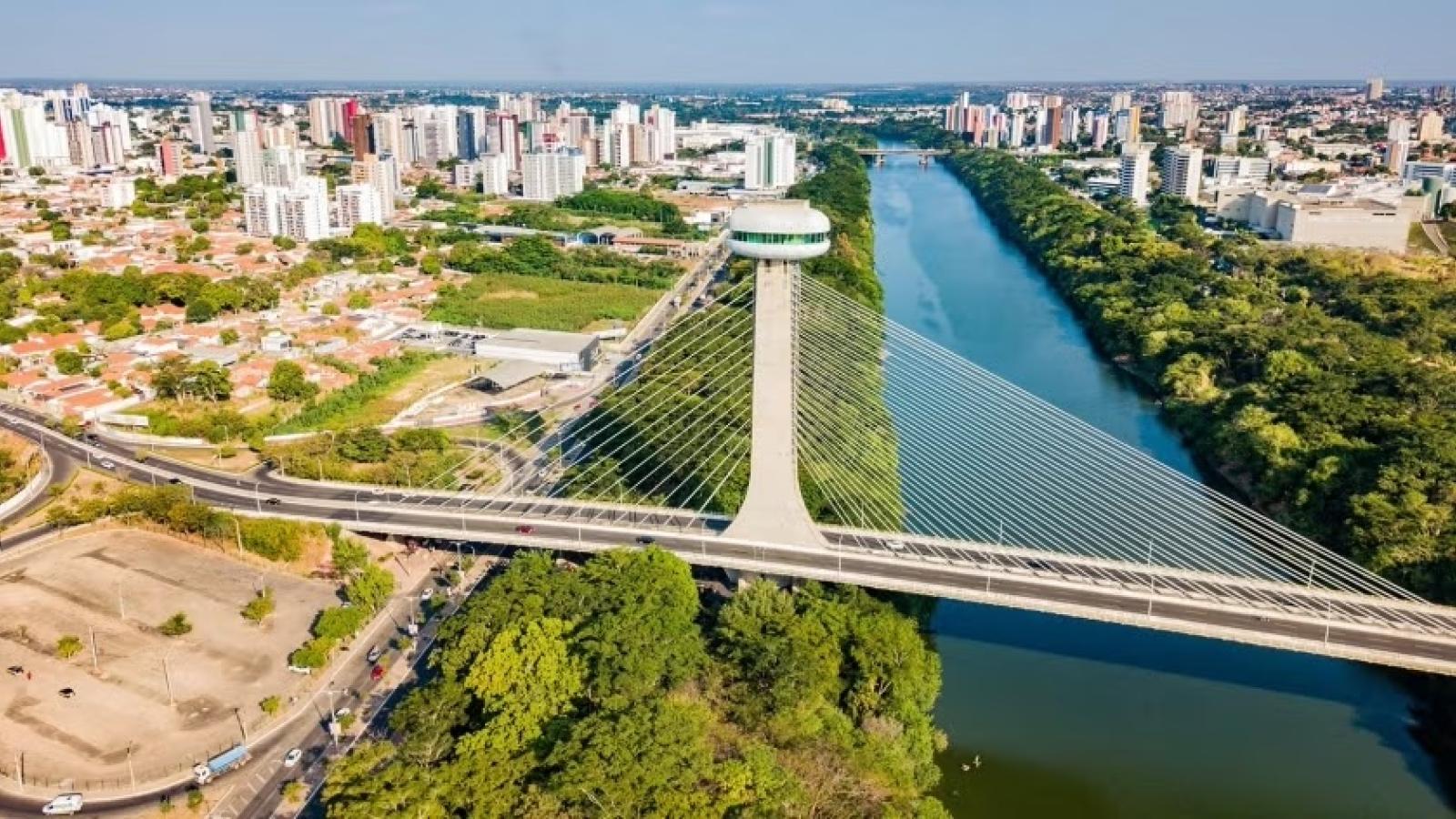Building connections to support sustainability across the world's cities
How UrbanShift is supporting the goals of a range of global initiatives for climate action and sustainability.
Teresina, Brazil. Photo credit: Jair/Adobe Stock
The role of cities in addressing environmental challenges is both critical and transformative. By 2050, 75 percent of the global population is expected to live in urban areas, creating immense pressures on resources, infrastructure, and ecosystems. Amid these challenges, the UrbanShift initiative, funded by the Global Environment Facility, links and amplifies the efforts of complementary global programs using an integrated approach to create the sustainable, low-carbon, and nature-positive cities that we need.
Decarbonizing cities to mitigate climate change
Cities are critical to meet the goals of the Paris Agreement. UrbanShift plays a catalytic role in helping cities align urban development strategies with national climate commitments. Its efforts to promote distributed clean energy generation, zero-carbon freight, low-emission buses, and clean air zones through a series of Finance Academies, Peer Exchanges, and Investor Roundtables have empowered cities to reduce their carbon footprints contributing to the global goal of limiting temperature rise to below 2°C.
These efforts are undertaken alongside key global initiatives that enhance multi-level governance for climate action, like the Coalition for High Ambition Multilevel Partnerships (CHAMP) initiative launched at UNFCCC COP28. The National-Local Dialogue in Rwanda in March 2025, for example, advanced CHAMP’s objectives with a focus on strengthening the role of cities and districts in shaping the country’s revised Nationally Determined Contribution in the leadup to COP30 in Brazil. Additionally, UrbanShift has supported the Sustainable Urban Resilience for the Next Generation (SURGe) initiative, launched during COP27, by providing tailored technical assistance to the cities of Chennai, Freetown, and Teresina to design, write, and publish their climate action plans.
Building resilience to extreme urban heat
As cities confront extreme heat, improving urban design, investing in green infrastructure, and creating equitable policies to protect the most affected communities are critical for resilience. Various global initiatives, for which UrbanShift plays a catalytic role, aim to address the crisis of extreme heat.
During Teresina’s Climate Conference in May 2024, the city became the latest signatory to the Subnational Cooling Pledge, joining six other cities - including Freetown, another UrbanShift city – in trailblazing a path for city-led action to tackle urban heat. UrbanShift’s Geospatial Data Dashboard enables cities to explore data to assess heat hazards and plan mitigation scenarios. Its trainings and thematic webinars disseminate best practices and support the progress from initiatives such as the UN Secretary General’s Call to Action on Extreme Heat, the Global Cooling Pledge, and the Cool Coalition.
Leveraging nature and supporting urban biodiversity
Biodiversity and nature loss pose an existential challenge for cities as they grow rapidly. Reducing the impact of urbanization on nature and building resilience with nature-based solutions is critical. Integrating nature in urban planning has been a cornerstone of UrbanShift. It has collaborated with strategic global initiatives including Generation Restoration Cities led by UNEP, CitiesWithNature led by ICLEI, and Nature-Positive Cities initiative, convened by the World Economic Forum to restore urban ecosystems, facilitate knowledge sharing, and encourage cities and businesses to co-create and scale up nature-based interventions.
In conjunction with these and other initiatives, UrbanShift’s Urban Biodiversity and Nature-based Solutions online City Academy courses offer free, self-paced learning modules to city practitioners. The complementary in-person City Academy trainings for cities - such as on Urban Biodiversity in Marrakech and on Nature-based Solutions in Jakarta - facilitate best practice sharing among cities, building on the course materials and examples from global initiatives.
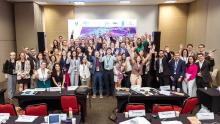
These trainings have borne fruit. In Costa Rica’s capital region, the La Guapil community is restoring a former dump site into thriving community greenspace, and Kigali is scaling up the success of its effort to rehabilitate the Nyandungu Urban Wetland to five other sites to mitigate flood risk and restore urban biodiversity. And a Peer-to-Peer Exchange on urban greening with the city of Barranquilla, Colombia has inspired Teresina, Brazil to implement its first rain garden and develop a citywide afforestation plan to combat extreme heat.
Leveraging partnerships for greater impact
One of UrbanShift’s greatest strengths is its role as a connector, forging strong partnerships with various stakeholders including national governments, local authorities, civil society organizations, and the private sector. By collaborating with a diverse range of partners, UrbanShift not only mobilizes resources but also fosters a shared sense of ownership and commitment to sustainable urban development. Its knowledge sharing and capacity-building efforts create a ripple effect, where cities learn from each other’s experiences and adapt best practices to their unique contexts.
To support cities in adopting sustainable transformation pathways, it’s critical that global initiatives collaborate to turn isolated efforts into systems that help cities scale up their efforts, innovate, and deliver benefits equitably. Global knowledge and partnership platforms like UrbanShift and the Global Platform for Sustainable Cities, supported by the GEF, are playing a pivotal role in bringing city-based organizations such as C40, ICLEI, WRI, UN agencies, and Multilateral Development Banks under one platform and connecting various initiatives to create resilient and sustainable cities. By working together, these initiatives are mutually benefiting each other and delivering results which are more than a sum of parts, aiming to transform cities into models of environmental stewardship and innovation - not just hubs of human activity.
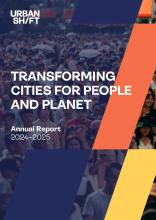
UrbanShift Annual Report 2024-2025
UrbanShift's final Annual Report spans an impactful year of over 30 events and major progress across our network of 23 cities.
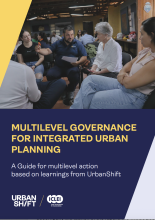
MULTILEVEL GOVERNANCE FOR INTEGRATED URBAN PLANNING
This report outlines key learnings and insights from UrbanShift's Multi-Level Governance Dialogues.
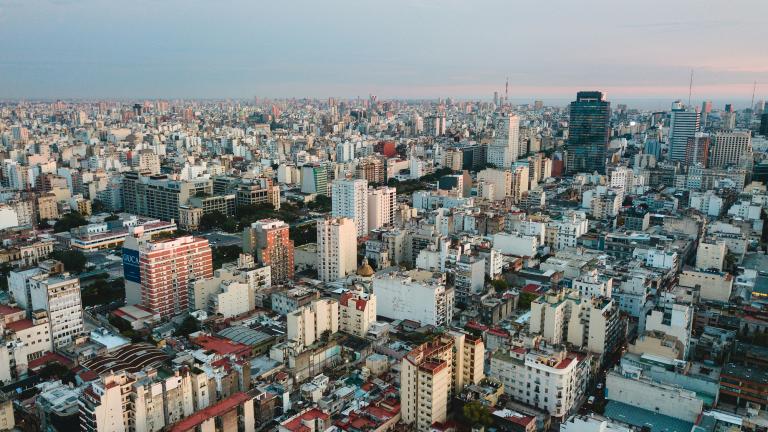
What's Next for the UrbanShift Network?
As the UrbanShift Global Platform concludes, the next phase of the GEF Sustainable Cities Impact Program will build on the momentum and progress for sustainable and resilient cities.
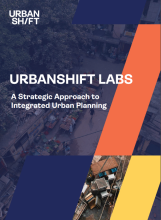
UrbanShift Labs
Summarizing insights and lessons from eight of UrbanShift's Labs, this report offers a template for furthering geospatial analysis in cities.
